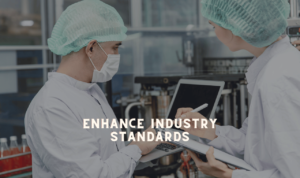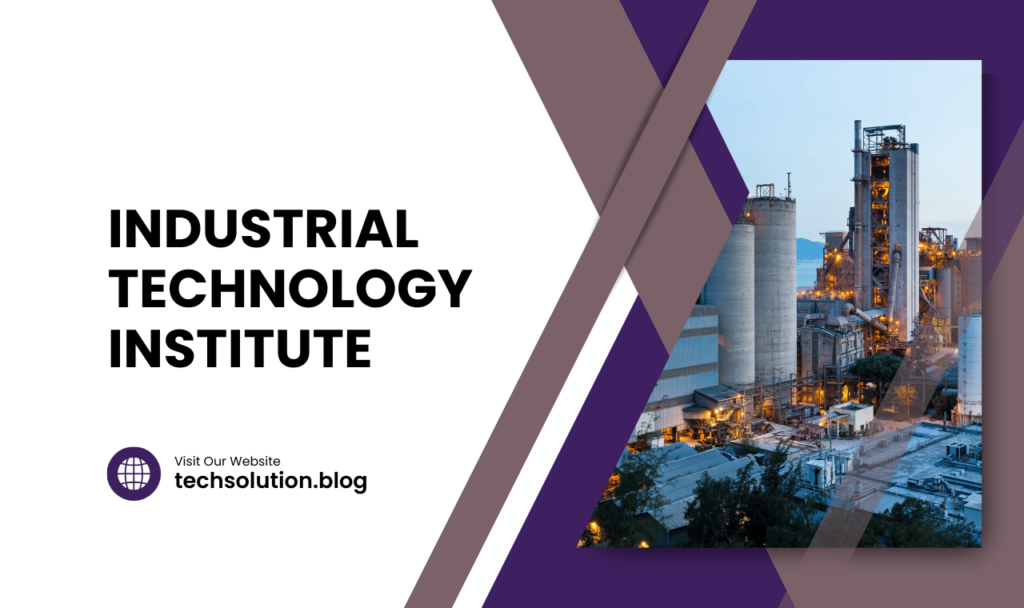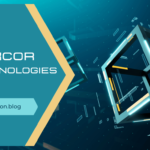Are you ready for the rapidly evolving industrial landscape? Maintaining high standards is paramount for fostering innovation, ensuring quality, and driving economic growth. The Industrial Technology Institute (ITI) plays a crucial role in this endeavor. By leveraging advanced research, cutting-edge technology, and strategic partnerships, ITI has become a cornerstone in enhancing industry standards.
This article delves into the myriad ways ITI contributes to the advancement of industry standards, highlighting its impact on various sectors and its collaboration with institutions like the Rochester Institute of Technology (RIT) in industrial engineering.
What is Industrial Technology?
Industrial Technology refers to the application of engineering and manufacturing technology to make production faster, simpler, and more efficient. It encompasses a wide range of technologies and methodologies used in the manufacturing and production sectors to optimize processes, improve quality, and increase productivity.
Here are some key components and aspects of industrial technology:
- Automation and Robotics: Utilizes automated systems and robots to perform tasks that were traditionally done by human labor, increasing efficiency and reducing the margin of error.
- Computer-Aided Design (CAD): The use of computer systems to aid in the creation, modification, analysis, and optimization of a design, resulting in more precise and efficient production processes.
- Computer-Aided Manufacturing (CAM): Involves the use of computer software to control machine tools and related machinery in the manufacturing process.
- Quality Control Systems: Techniques and systems used to ensure that products meet required standards and specifications, often involving statistical methods and various testing procedures.
- Materials Science: The study and application of the properties of materials, which is crucial for selecting the right materials for specific manufacturing processes.
How To Enhance Industry Standards

Pioneering Research and Development
At the heart of ITI’s mission is a robust research and development (R&D) program. This program focuses on identifying industry needs and developing innovative solutions to address them. By conducting comprehensive research, ITI helps set new benchmarks in industrial processes and technologies. The institute’s R&D initiatives often lead to the creation of new materials, manufacturing techniques, and automation solutions that significantly enhance productivity and quality.
For instance, ITI’s research in additive manufacturing, also known as 3D printing, has revolutionized the way products are designed and produced. By developing new materials and optimizing printing processes, ITI has enabled industries to produce complex components with unprecedented precision and efficiency. This advancement not only improves product quality but also reduces production costs and time, setting a new standard in manufacturing.
Collaboration with Academic Institutions
One of the key strategies employed by ITI to enhance industry standards is its collaboration with leading academic institutions. A notable example is its partnership with the Rochester Institute of Technology (RIT) in industrial engineering. This collaboration brings together the best of both worlds: ITI’s practical, industry-focused approach and RIT’s academic excellence and research capabilities.
Through joint research projects, student internships, and faculty exchanges, ITI and RIT create a symbiotic relationship that benefits both academia and industry. Students gain hands-on experience and exposure to real-world challenges, while industry professionals have access to the latest research findings and technological advancements. This collaboration ensures that the industry standards are continually updated and aligned with the latest scientific and technological developments.
Advanced Training and Workforce Development
In addition to research and academic collaborations, ITI places a strong emphasis on workforce development. By offering advanced training programs, workshops, and certification courses, ITI helps equip the workforce with the skills needed to meet the ever-evolving industry standards. These programs cover a wide range of topics, including advanced manufacturing techniques, quality management, and industrial automation.
ITI’s training programs are designed to address the specific needs of different industries. For example, in the automotive sector, ITI offers specialized training on the latest advancements in electric vehicle technology and autonomous driving systems. By keeping the workforce up-to-date with the latest industry trends and best practices, ITI ensures that industries can maintain high standards of quality and efficiency.
Quality Assurance and Standardization
Another critical aspect of ITI’s contribution to industry standards is its focus on quality assurance and standardization. ITI develops and promotes industry-wide standards that ensure consistency, reliability, and safety in industrial processes and products. These standards are based on rigorous research and testing, and they serve as benchmarks for companies to follow.
ITI’s work in standardization extends to various industries, including aerospace, healthcare, and electronics. For instance, in the healthcare sector, ITI has developed standards for the production of medical devices, ensuring that they meet the highest levels of safety and efficacy. By setting these standards, ITI helps prevent defects and failures, ultimately protecting consumers and enhancing the reputation of industries.
Technology Transfer and Commercialization
One of the significant challenges in advancing industry standards is the effective transfer of technology from research labs to the marketplace. ITI addresses this challenge through its technology transfer and commercialization initiatives. By working closely with industry partners, ITI helps translate research findings into practical applications that can be adopted by companies.
ITI’s technology transfer office plays a crucial role in this process. It identifies promising technologies, protects intellectual property, and facilitates licensing agreements with industry partners. This ensures that innovative solutions developed at ITI are effectively commercialized and integrated into industrial processes, thereby enhancing industry standards.
Sustainability and Environmental Impact
In today’s world, sustainability is a critical component of industry standards. ITI is at the forefront of promoting sustainable practices and technologies that reduce the environmental impact of industrial activities. Through its research and initiatives, ITI encourages industries to adopt greener technologies and processes.
For example, ITI’s work in renewable energy technologies has led to significant advancements in solar and wind power generation. By developing more efficient and cost-effective renewable energy solutions, ITI helps industries reduce their carbon footprint and transition to cleaner energy sources. This not only benefits the environment but also sets new standards for sustainability in the industrial sector.
Industry-Specific Initiatives
ITI’s impact on industry standards is not limited to a single sector. The institute undertakes industry-specific initiatives to address the unique challenges and requirements of different industries. These initiatives involve tailored research projects, customized training programs, and targeted standardization efforts.
In the aerospace industry, for example, ITI has worked on developing advanced composite materials that enhance the performance and safety of aircraft. These materials are lighter and stronger than traditional materials, leading to improved fuel efficiency and reduced emissions. By setting new standards for materials used in aerospace, ITI contributes to the overall advancement of the industry.
Similarly, in the electronics industry, ITI has been instrumental in developing standards for the production of semiconductors and electronic components. These standards ensure that electronic devices are reliable, efficient, and compatible with various systems, driving innovation and growth in the industry.
Global Influence and Recognition
ITI’s contributions to enhancing industry standards have garnered global recognition. The institute’s research findings and standards are widely adopted by industries and regulatory bodies around the world. This global influence ensures that ITI’s impact extends beyond national borders, benefiting industries on a global scale.
Furthermore, ITI actively participates in international conferences, forums, and standardization committees. By sharing its expertise and collaborating with international partners, ITI helps shape global industry standards and fosters international cooperation in advancing industrial technologies.
Future Prospects and Challenges

As industries continue to evolve, ITI remains committed to its mission of enhancing industry standards. The institute is constantly exploring new frontiers in technology and innovation, such as artificial intelligence, the Internet of Things (IoT), and advanced robotics. These emerging technologies hold immense potential for further improving industry standards and driving economic growth.
However, ITI also faces challenges in its pursuit of excellence. Rapid technological advancements, changing regulatory landscapes, and evolving industry needs require ITI to remain agile and adaptive. The institute must continuously update its research agenda, training programs, and standardization efforts to stay ahead of the curve.
Conclusion
The Industrial Technology Institute (ITI) plays a pivotal role in enhancing industry standards through its pioneering research, strategic collaborations, advanced training programs, and focus on quality assurance and standardization. ITI works closely with academic institutions like the Rochester Institute of Technology (RIT) in industrial engineering to continually update industry standards and align them with the latest technological advancements.
Through its technology transfer and commercialization initiatives, ITI translates research findings into practical applications that benefit industries. The institute’s commitment to sustainability and industry-specific initiatives further reinforces its impact on industry standards. As a globally recognized leader in industrial technology, ITI’s influence extends beyond national borders, shaping global industry standards and fostering international cooperation.
Looking ahead, ITI’s focus on emerging technologies and its ability to adapt to changing industry needs will be crucial in maintaining its role as a standard-bearer in the industrial sector. By continuing to innovate and collaborate, ITI will remain at the forefront of enhancing industry standards, driving economic growth, and ensuring a sustainable future for industries worldwide.



